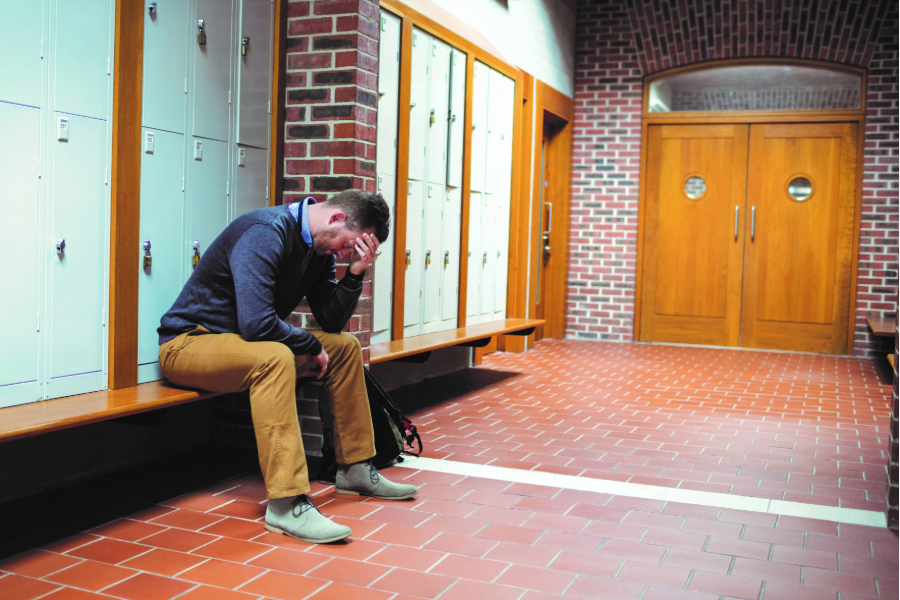2-8 December 2025
This article was published on 26 Nov 2025. At the time of publishing, this article was true and accurate, however, over time this may have changed. Some links may no longer work. If you have any concerns about this please contact us.
Grief Awareness Week is run by the Good Grief Trust Organisation. The aim of the week is to raise awareness of the impact of grief and to break the taboo around talking about grief. This year the theme is Growing with Grief, for more details click here.
Signs and symptoms of grief
There is not a correct way to feel when you are grieving. Bereavement, grief, and loss will cause different symptoms and they affect people in different ways. Some of the most common symptoms include:
- Shock and numbness
- Overwhelming sadness
- Tiredness or exhaustion
- Anger – towards the person you’ve lost or the reason for your loss
- Guilt – this could be due to many things, including not being with the person when they died, not saying something to them, or not being able to stop your loved one dying.
These feelings may not be there all the time and powerful feelings may appear unexpectedly.
For more details click here.
Looking after yourself following a bereavement
- Take care of your wellbeing: make sure you get enough sleep, eat regular meals, rest, and relax.
- Be clear on expectations: make sure you know what is expected of you and whether it is realistic.
- Exercise: taking regular exercise, like walking, running, and cycling can help you relax and increase wellbeing.
- Talk to others: make time to talk to your family and friends about how you’re feeling, or if you would find it easier contact Cruse on 0808 808 1677.
Explain to family and friends what they can do to help, don’t be afraid to ask for practical support.
Try to keep to a regular routine of getting up and dressed and eating meals at the usual time, whether you are on your own or part of a family group. The structure will help, even if only a little.
You may find you have days when you have more energy, and the grief isn’t as consuming – this is normal. Some people can feel guilty when this happens, but there is no need. It is all a normal part of grieving. Equally if you are really struggling that is also normal. Please don’t feel guilty or angry with yourself.
What to say when someone is grieving
It is normal to feel worried about saying the wrong thing to the bereaved, but it is more important that you say something than finding the perfect words. You may find the tips below useful:
- It is important to acknowledge their loss and offer your condolences, saying how sorry you are that their friend or family member has died.
- The bereaved may want to talk about the person and tell you stories, they may cry through these stories. You may find this really hard to hear but just being there and listening can be a great comfort. You can’t fix their pain, but you can listen.
- Don’t be afraid to ask more about the person who has died. Allowing the bereaved person to talk and share their feelings with you can make a real difference.
- Ask if there is anything practical that you can do to help at that time.
- You could also signpost the bereaved to services such as Cruse for them to access support.
Helping children to cope with death
Children and young people need to be given the opportunity to grieve as any adult would. But it is also important to remember that children and young people grieve in different ways. A child’s understanding of death and the nature of their bereavement will be different at different stages of development. Children will experience both physical and emotional reactions to death. Emotional reactions may include shock, denial, anger, depression, guilt. Physical reactions may include disturbed sleep, loss of appetite, challenging behaviour, and developmental delays.
Useful links:
- NHS Children and Bereavement
- Child Bereavement UK Resources for children and young people
- Cruse Bereavement Care Helping children to cope with death
Some key points to remember concerning children, young people, and grief:
- No bereaved child or young person will respond to the death of someone close in the same way.
- Keep the structure of the bereaved child or young person’s day/night as routine as possible.
- Allow the bereaved child or young person to say how they feel and do not be offended if they are angry with you or do not want to talk.
- Give the bereaved child or young person the time to explore their grief and support them as they mourn.
- Do not feel that you have failed if you need to seek professional help for the bereaved child or young person. You are doing the right thing.
- Put in place appropriate boundaries if a grieving child or young person is hurting themselves or others and explain why such boundaries are necessary.
- Do not dismiss a bereaved child or young person’s real or perceived illness.
- Talk things through with them in an open and honest way, remembering to listen to the child or young person.
What to do when someone dies
Working out what to do first when someone dies can seem overwhelming. Besides letting family and friends know, there are several organisations you need to notify when a person has passed away. As well as arranging the funeral and dealing with the financial affairs of someone who has died.
Useful links:
Everyone responds to death differently there is no right or wrong way to respond. If you have experienced the loss of a loved one you may need to access professional support. Similarly, if you are supporting someone who has been bereaved you may need support for yourself.
Where to get help:
- NHS
- Cruse Bereavement Care
- Call the free helpline on 0808 808 1677 or email: helpline@cruse.org.uk










